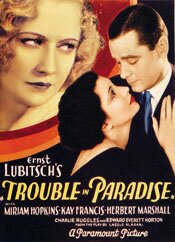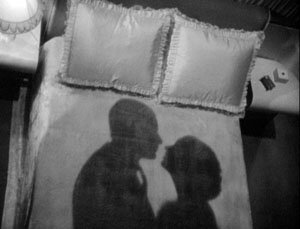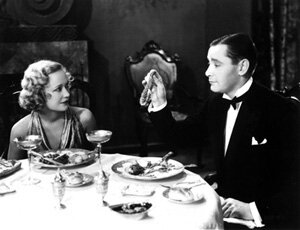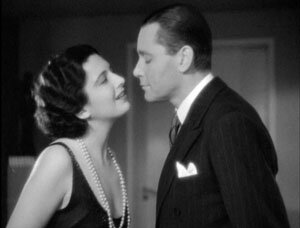Without really planning too, I’ve found myself watching the movies of Ernst Lubitsch. A few nights ago it was The Shop Around the Corner. Last night it was Trouble in Paradise. I had seen both before, at least once each. What I find interesting is that the more I see them, the more I like them. The first time around you miss how well constructed they are because they evolve so seamlessly. So I definitely recommend seeing them at least twice.
 Trouble in Paradise (1932)
Trouble in Paradise (1932)
One of the finest romantic comedies ever made, and one that in many ways created a template and set standards for later romantic comedies (while also looking ahead to the screwball comedies to come), is Ernst Lubitsch’s Trouble in Paradise, made in 1932.
With a single film, American cinema suddenly grew up. In many ways, it’s the most adult film Hollywood has ever made. (Not long after, production codes were put in place and much of what is in Trouble in Paradise would not have been allowed.)
Prior to Lubitsch’s first nonmusical American film, the sophisticated manner and style of this movie hadn’t been seen, not on this side of the Atlantic. Nor had this degree of elevated wit or sexual play.
 Much is made of the “Lubitsch touch,” and there certainly is such a thing. While a bit hard to define precisely, it has a great deal to do with a European sensibility, one not informed by a Puritan cultural background. It has to do with wit and sophistication and adult romance.
Much is made of the “Lubitsch touch,” and there certainly is such a thing. While a bit hard to define precisely, it has a great deal to do with a European sensibility, one not informed by a Puritan cultural background. It has to do with wit and sophistication and adult romance.
Here, adult means playful, well-mannered and tinged by a degree of melancholy. Trouble in Paradise is a perfect example of this.
The movie is about two charming thieves, their love for one another, as well as their enjoyment of their craft. It’s about the playfulness between them, and the woman whom they choose as their mark.
Herbert Marshall is the thief Gaston Monescu. He charms his way into the life of Mariette Colet (Kay Francis) in order to steal her money. His love, the pickpocket Lily (Miriam Hopkins), is his accomplice.
 But this is what Hitchcock would call the McGuffin. The movie is really about the triangle that develops as Gaston becomes romantically enchanted by Mariette just as she falls in love with him. All the while, Lily is still there and still loves Gaston, just as he still loves her.
But this is what Hitchcock would call the McGuffin. The movie is really about the triangle that develops as Gaston becomes romantically enchanted by Mariette just as she falls in love with him. All the while, Lily is still there and still loves Gaston, just as he still loves her.
Lubitsch’s direction is nothing less than wonderful here. One of the qualities that characterize his films, especially in Trouble in Paradise, is his refusal to be obvious about anything. He tells his story through indirection and implication, rarely being overt.
This is particularly true with the way he implies sexuality and its encounters without ever stating, much less showing, anything. It is part of the film’s playful wit and charm and adult quality. Equally adult is the absence of any salacious sense. There is no sense of “nudge-nudge, wink-wink” here.
Yet, essentially, the film is about lust, Gaston’s and Mariette’s.
 As Peter Bogdanovich mentions in his introduction to the Criterion DVD of the film, it’s a wonder this was ever made in Hollywood, particularly when we see where we are today.
As Peter Bogdanovich mentions in his introduction to the Criterion DVD of the film, it’s a wonder this was ever made in Hollywood, particularly when we see where we are today.
While the troubled triangle of Gaston, Mariette and Lily plays out, the movie also gives us the ineffectual efforts of the Major (Charlie Ruggles) and Francois (Edward Everett Horton), two of Mariette’s luckless suitors. Their ineptness and pretensions provide a nice comedic counterpoint to the sophistication of Gaston.
Much of what Lubitsch does isn’t noticed on first viewing the movie. It is too seamless and fluid. The plot unfolds too effortlessly. It’s only on seeing a second or third or fourth time you see the small details he attends to and just how cleverly the movie is constructed.
In cinema terms, Ernst Lubitsch was a magician. Much of what he does is a kind of sleight of hand — verbal and visual. His movies, like Trouble in Paradise, are mature, charming and absolutely wonderful.
See:



1 Response